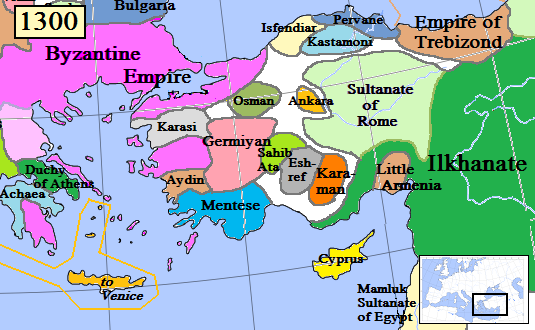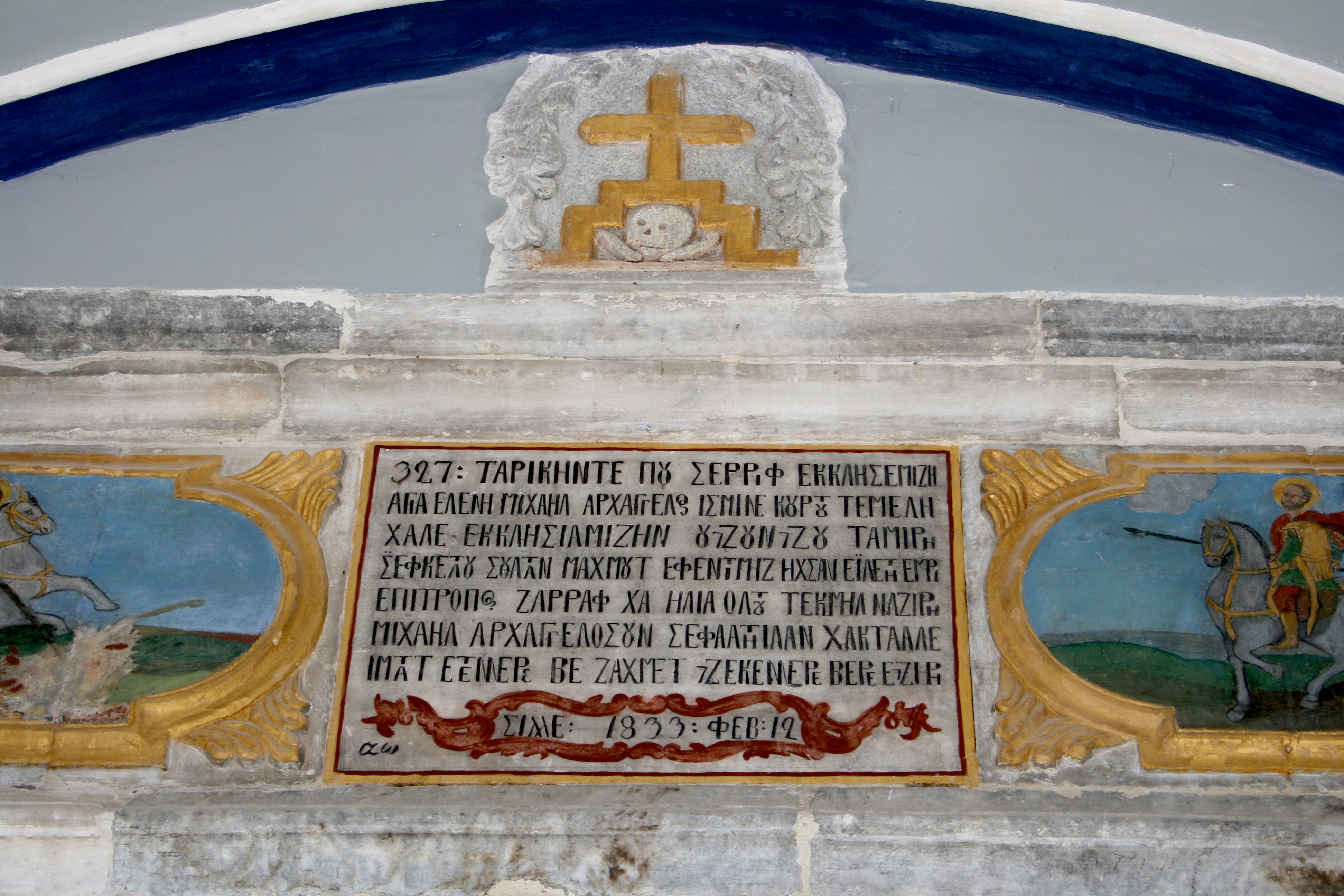|
Karamanlis Family
Karamanlis or Karamanli may refer to: * someone or something from Karaman, Turkey People * The Karamanlis political family of Greece (') ** (1880-1932), Greek teacher ** Konstantinos Karamanlis (1907–1998), former President and Prime Minister of Greece ** Kostas Karamanlis (born 1956), nephew of Konstantinos, former Prime Minister of Greece ** Anastasia Pazaiti-Karamanli (born 1966), better known as Natasa Pazaïti, wife of Kostas ** (born 1932), son of George and brother of Konstantinos, MP 1974-2009 and government minister ** Kostas Karamanlis (born 1974), son of Achilleas, MP since January 2015 * Anna Karamanli, Greek sportswoman and politician * Marietta Karamanli (born 1964), French politician * Karamanli dynasty (Turkish: ''Karamanlı'') of Ottoman Tripolitania ** Ahmed Karamanli (1686–1745), dynasty's founder and pasha of Tripolitania ** Yusuf Karamanli (1766–1838), pasha of Tripolitania Places * Karamania (region), a region of Asia Minor in Turkey * Karamanl ... [...More Info...] [...Related Items...] OR: [Wikipedia] [Google] [Baidu] |
Karaman
Karaman, historically known as Laranda (Greek: Λάρανδα), is a city in south central Turkey, located in Central Anatolia, north of the Taurus Mountains, about south of Konya. It is the capital district of the Karaman Province. According to the 2000 census, the population of the province is 231,872 of which 132,064 live in the town of Karaman. The district covers an area of , and the town lies at an average elevation of . The Karaman Museum is one of the major sights. Etymology The town owes its name to Karaman Bey, who was one of the rulers of the Karamanid dynasty. The former name ''Laranda'' which in turn comes from the Luwian language ''Larawanda'', literally means "sandy, a sandy place". History In ancient times, Karaman was known as Laranda ( el, Λάρανδα). In the 6th century BC it came under Achaemenid rule until 322 BC, when it was destroyed by Perdiccas, a former general of Alexander the Great, after he had defeated Ariarathes I, king of Cappadocia. It lat ... [...More Info...] [...Related Items...] OR: [Wikipedia] [Google] [Baidu] |
Karamania (region)
In the 18th and 19th centuries, Karamania (or Caramania) was an exonym used by Europeans for the southern (Mediterranean) coast of Anatolia, then part of the Ottoman Empire (current Turkey). It can also refer to the general south central Anatolian region, whose name is reflected on the modern town of Karaman. It is also the namesake of the larger Karaman Province of Turkey, the historical Karaman Eyalet of the Ottoman Empire, the medieval Turkish Karamanids dynasty and state from the region, and the Karamanlides, a Turkish-speaking Orthodox Christian group originally from the area. Francis Beaufort and the Term Karamania In 1811–12, Francis Beaufort, then the captain of in the British Navy, was tasked with mapping the Mediterranean coast of Anatolia. In 1817, he published a book about his services, titled ''Brief description of the south coast of Asia-Minor and of the remains of antiquity. With plans, views, & collected during a survey of that coast, under the orders of the Lords ... [...More Info...] [...Related Items...] OR: [Wikipedia] [Google] [Baidu] |
Karamanids
The Karamanids ( tr, Karamanoğulları or ), also known as the Emirate of Karaman and Beylik of Karaman ( tr, Karamanoğulları Beyliği), was one of the Anatolian beyliks, centered in South-Central Anatolia around the present-day Karaman Province. From the middle 1300s until its fall in 1487, the Karamanid dynasty was one of the most powerful beyliks in Anatolia. History The Karamanids traced their ancestry from Hodja Sad al-Din and his son Nure Sofi, Nure Sufi Bey, who emigrated from Arran (Caucasus), Arran (roughly encompassing modern-day Azerbaijan) to Sivas because of The Mongol Invasions, the Mongol invasion in 1230. The Karamanids were members of the Salur tribe of Oghuz Turks. According to Muhsin Yazıcıoğlu and others, they were members of the Afshar tribe,Cahen, Claude, ''Pre-Ottoman Turkey: A General Survey of the Material and Spiritual Culture and History c. 1071–1330'', trans. J. Jones-Williams (New York: Taplinger, 1968), pp. 281–2. which participated in t ... [...More Info...] [...Related Items...] OR: [Wikipedia] [Google] [Baidu] |
Karamanli Turkish
Karamanlı Turkish ( tr, Karamanlı Türkçesi, el, Καραμανλήδικα, Karamanlídika) is a dialect of the Turkish language spoken by the Karamanlides. Although the official Ottoman Turkish was written in the Arabic script, the Karamanlides used the Greek alphabet to write their form of Turkish. Karamanlı Turkish had its own literary tradition and produced numerous published works in print during the 19th century, some of them published by the British and Foreign Bible Society as well as by Evangelinos Misailidis in the Anatoli or Misailidis publishing house. Karamanlı writers and speakers were expelled from Turkey as part of the Greek-Turkish population exchange in 1923. Some speakers preserved their language in the diaspora. The written form stopped being used immediately after Turkey adopted the Latin alphabet. A fragment of a manuscript written in Karamanlı was also found in the Cairo Geniza. Sample Text The following sample text displays the text written in ... [...More Info...] [...Related Items...] OR: [Wikipedia] [Google] [Baidu] |
Karamanlides
The Karamanlides ( el, Καραμανλήδες; tr, Karamanlılar), also known as Karamanli Greeks or simply Karamanlis, are a traditionally Turkish-speaking Greek Orthodox people native to the Karaman and Cappadocia regions of Anatolia. The origins of the Karamanlides have long been disputed; there are two basic theories on the subject. According to one, they are the remnants of the Byzantine Greek population, which though it remained Orthodox, was linguistically Turkified. The second theory holds that they were originally Turkic soldiers which the Byzantine emperors had settled in Anatolia, and who retained their language and Christian religion after the Turkic conquests. The Karamanlides were forced to leave Anatolia during the 1923 population exchange between Greece and Turkey. Today, a majority of the population live in Greece and have been well integrated into Greek society. Etymology The term is geographical, derived from the 13th century Kingdom of Karaman. Origi ... [...More Info...] [...Related Items...] OR: [Wikipedia] [Google] [Baidu] |
Qaramanlı, Neftchala (other)
Qaramanlı, Neftchala may refer to: *Aşağı Qaramanlı *Yuxarı Qaramanlı Yuxarı Qaramanlı (also, Yukhary Garamanly) is a village and municipality in the Neftchala District of Azerbaijan Azerbaijan (, ; az, Azərbaycan ), officially the Republic of Azerbaijan, , also sometimes officially called the Azerbaijan R ... {{geodis ... [...More Info...] [...Related Items...] OR: [Wikipedia] [Google] [Baidu] |
Qaramanlı
Qaramanlı (also, Garamanly and Garamanli) is a village and municipality in the Yevlakh District Yevlakh District ( az, Yevlax rayonu) is one of the 66 districts of Azerbaijan. It is located in the centre of the country and belongs to the Central Aran Economic Region. The district borders the districts of Qakh, Shaki, Agdash, Barda, Tarta ... of Azerbaijan. It has a population of 2,230. The municipality consists of the villages of Garamanly, Hajymahmudlu, Dəlləklər, Köyük, Nəmirli, and Nurulular. References * Populated places in Yevlakh District {{Yevlakh-geo-stub ... [...More Info...] [...Related Items...] OR: [Wikipedia] [Google] [Baidu] |
Karamanlı, Burdur
Karamanlı is a town in Burdur Province in the Mediterranean region of Turkey. It is the seat of Karamanlı District.İlçe Belediyesi Turkey Civil Administration Departments Inventory. Retrieved 30 January 2023. Its population is 6,157 (2021). References External links Municipality's official website Populated places in Burdur Province Towns in Turkey [...More Info...] [...Related Items...] OR: [Wikipedia] [Google] [Baidu] |
Yusuf Karamanli
Yusuf (ibn Ali) Karamanli, Caramanli or Qaramanli or al-Qaramanli (most commonly Yusuf Karamanli), (1766 – 1838) was the longest-reigning Pasha of the Karamanli dynasty of Tripolitania (in present-day Libya). He is noted for his role in the Barbary Wars against the United States. Assumption of the throne Born in Tripoli in 1766, Karamanli, a member of the Karamanli dynasty (named after the Karamanids in Turkey), was originally of Turkish origin.. His brother, Hamet Karamanli, was deposed from leadership in 1793 by Ottoman Empire officer Ali Pasha, who proceeded to exile the Karamanli family and claim Ottoman rule over Tripoli. In 1795, Hamet and Yusuf returned to Tripoli, and with the aid of Hammuda Pasha of the neighboring Barbary state of Tunis, recaptured it from Ali Pasha. Yusuf then had his brother exiled to Alexandria, Egypt and claimed the throne for himself. Barbary Wars In 1796, Karamanli drafted and signed the Treaty of Tripoli, which permitted the passage ... [...More Info...] [...Related Items...] OR: [Wikipedia] [Google] [Baidu] |
Konstantinos Karamanlis
Konstantinos G. Karamanlis ( el, Κωνσταντίνος Γ. Καραμανλής, ; 8 March 1907 – 23 April 1998), commonly Anglicisation, anglicised to Constantine Karamanlis or just Caramanlis, was a four-time prime minister and List of heads of state of Greece#Third Hellenic Republic (since 1974), twice as the President of Greece, president of the Third Hellenic Republic, and a towering figure of Greek politics, whose political career spanned much of the latter half of the 20th century. The longest serving Prime Minister of modern Greek history (c. 14 years), during his first term (1955-1963) he applied a program of rapid industrialization, heavy investment on infrastructure and improvement on agricultural production, which led to the post-war Greek economic miracle. He also implemented the extension of full women's suffrage, voting rights to women, which had stood dormant since 1952. In his second term, after 1974, he is recognised for his successful restoration of Democ ... [...More Info...] [...Related Items...] OR: [Wikipedia] [Google] [Baidu] |
Ahmed Karamanli
Ahmed or Ahmed Karamanli or Qaramanli or al-Qaramanli, (most commonly Ahmed Karamanli) (1686–1745) was of Janissary origin and a Member from the Karamanids.The City in the Islamic world, Volume 1, Salma Khadra Jayyusi, Renata Holod, Attilio Petruccioli, André Raymond, 2008, page 394 He founded the Karamanli dynasty (1711–1835) of Tripolitania or Tripoli (in present-day Libya). He reigned (1711–1745), as the first Karamanli Pasha of Tripolitania. In the early 18th century, the Ottoman Empire was losing its grip on its North African holdings, including Tripoli. A period of civil war ensued, with no ruler able to hold office for more than a year. Ahmed Karamanli, a Janissary and popular cavalry officer, murdered the Ottoman governor and seized the throne in the 1711 Karamanli coup. After persuading the Ottomans to recognize him as governor, Ahmed established himself as pasha and made his post hereditary. Though Tripoli continued to pay nominal tribute to the Ottoman padis ... [...More Info...] [...Related Items...] OR: [Wikipedia] [Google] [Baidu] |
Karamanli Dynasty
The Karamanli, Caramanli, Qaramanli, or al-Qaramanli dynasty was an early modern dynasty, independent or quasi-independent, which ruled from 1711 to 1835 in Ottoman Tripolitania. The territory comprised Tripoli and its surroundings in present-day Libya. At its peak, the Karamanli dynasty's influence reached Cyrenaica and Fezzan, covering most of Libya. The founder of the dynasty was Pasha Ahmed Karamanli, a descendant of the Karamanids. The most well-known Karamanli ruler was Yusuf ibn Ali Karamanli Pasha who reigned from 1795 to 1832, who fought a war with the United States between 1801 and 1805. Ali II Karamanli marked the end of the dynasty. History In the early 18th century, the Ottoman Empire was losing its grip on its North African holdings, including Tripolitania. A period of civil war ensued, with no ruler able to hold office for more than a year. Ahmed Karamanli, a Janissary and popular cavalry officer, murdered the Ottoman governor of Tripolitania and seized the thr ... [...More Info...] [...Related Items...] OR: [Wikipedia] [Google] [Baidu] |



